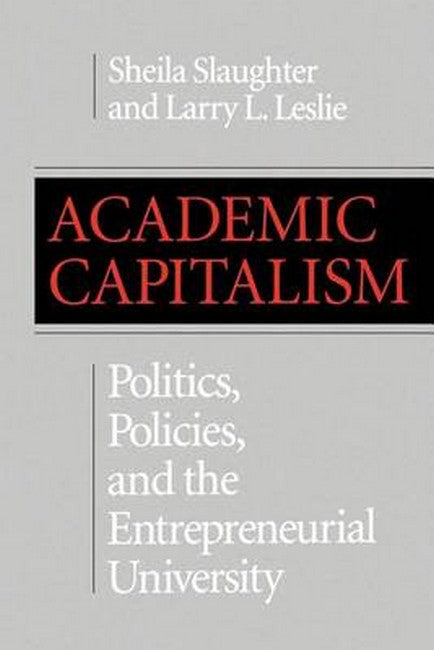''Research has become an indispensable commodity for modern society, and academic researchers are the new superstars and entrepreneurs--with incomes to match. Not since Clark Kerr's landmark Uses of the University has any book beamed such an exposing light on this dark, neglected development, which is transforming campus teaching and administration. Slaughter and Leslie have pierced the smoke surrounding the tweedy knowledge factories of post-industrial capitalism.''George Keller, author of Academic Strategy: The Management Revolution in American Higher Education The globalization of the political economy at the end of the twentieth century is destabilizing the traditional patterns of university professional work. One of the major changes that has taken place as a result of globalization is that faculty, who were previously situated between capital and labor, are now positioned squarely in the marketplace. To grasp the extent of changes taking place and to understand the forces of change, Academic Capitalism examines the current state of academic careers and institutions, with a particular focus on public research universities in the United States, Canada, the United Kingdom, and Australia. In this wide-ranging analysis, Sheila Slaughter and Larry L. Leslie examine every aspect of academic work unexplored: undergraduate and graduate education, teaching and research, student aid policies, and federal research policies. ''In their fascinating study of public research universities, Slaughter and Leslie . . . affirm that tertiary education in the U.S. as well as in Australia, Canada, and Great Britain, especially since 1970, has merged with the marketplace, a development that alarms many as a kind of academic prostitution . . . This well-written book is must reading for anyone, lay or professional, seriously interested in the future of higher education.''R. O. Ulin, University of North Carolina at Chapel Hill, Choice ''The authors conclude that a better understanding of academic capitalism will foster and empower successful academic capitalists. However, they view with regret the demise of the concept of the university as a community in which the individual members are oriented primarily toward the greater good of the organization . . . The book provides a valuable overview of the globalization of the political economy.''Jann Contento, Arizona State University, Education Review ''Without even mentioning the dreaded and dated Marx, the authors have produced a convincing analysis of the transition of the academy from its own protected form of feudalism to a predatory capitalism . . . [including] long-term changes in the ethos, aims, and management of universitieschanges that have wedded them and their futures to the vagaries of the global marketplace.''Michael Ryan, College and Research Libraries

